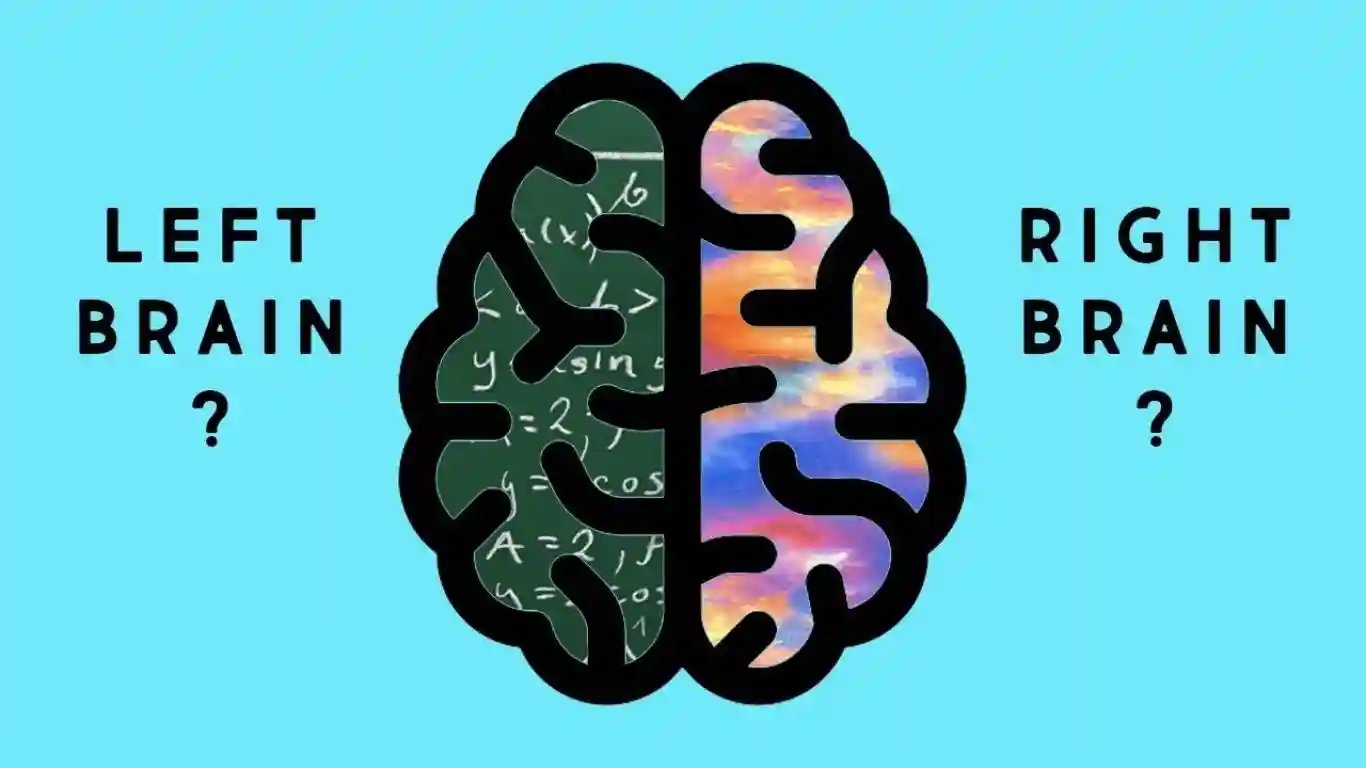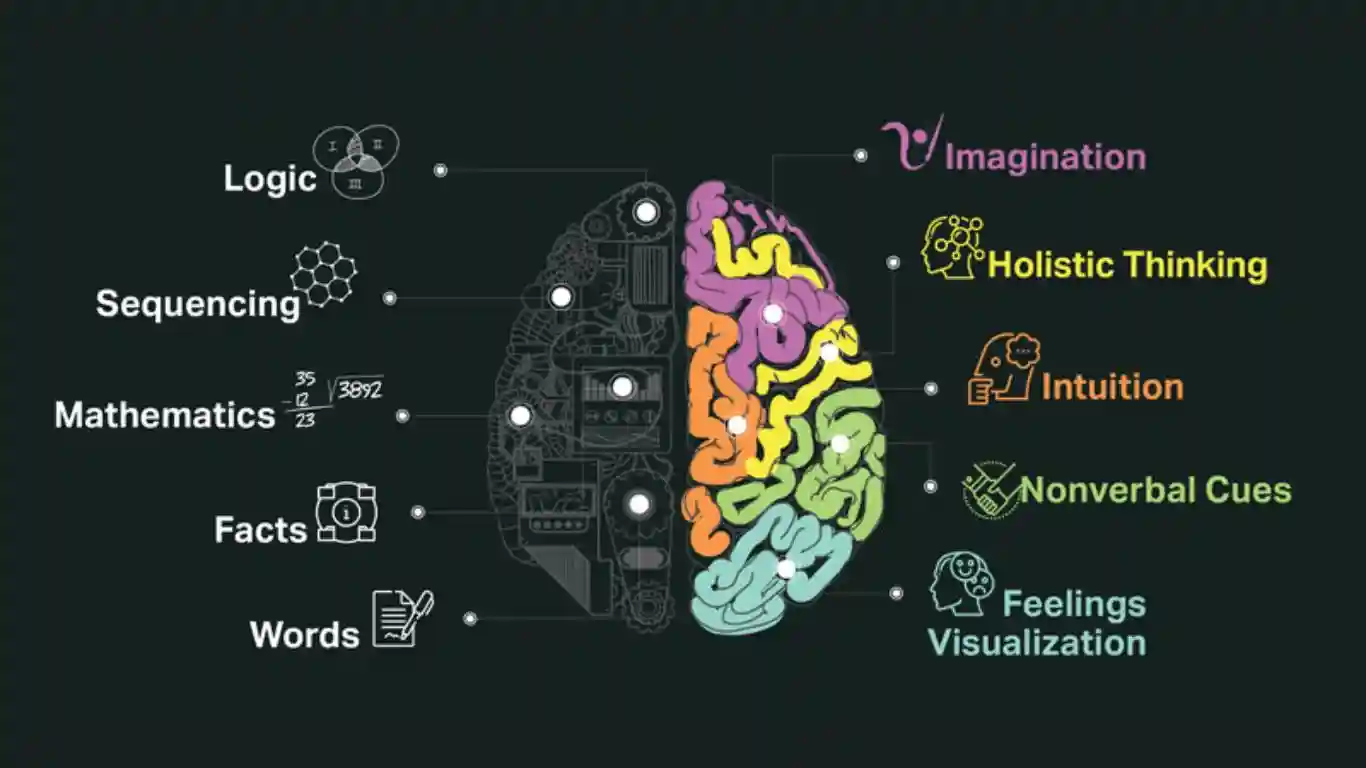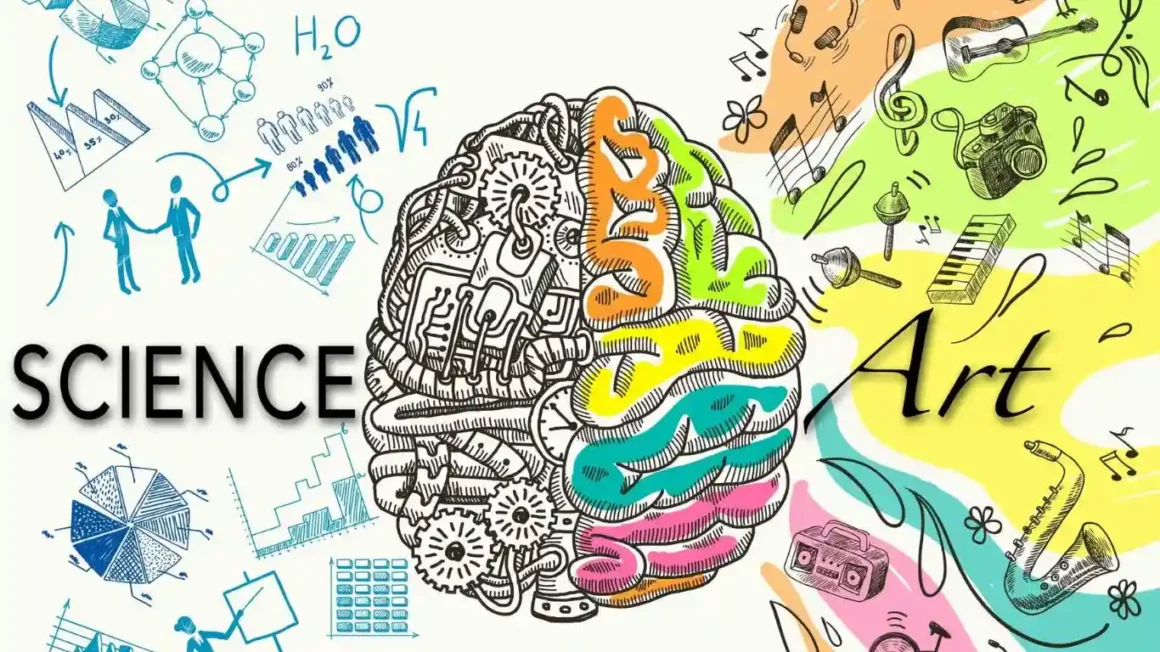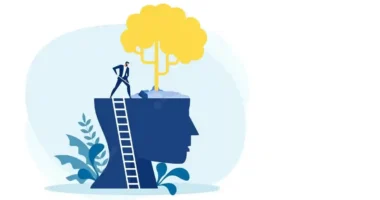Things Left Brain And Right Brain are Responsible To Do – The brain is a sophisticated and diligent organ. It contains up to 100 billion neurons. Although it only makes up about 2 percent of a person’s body weight, it consumes a significant 20 percent of the body’s energy. Numerous nerve fibers connect the left and right halves of the brain. The two sides of a healthy brain communicate with one another.
Things Left Brain And Right Brain are Responsible To Do
Left Brain Vs. Right Brain
According to the left brain vs. right brain theory, everyone has a dominant side of the brain that shapes their personality, ideas, and conduct. The notion that humans can be left-brained or right-brained is alluring since people can be either left-or right-handed. People with a left brain are believed to be more analytical rational, fact-driven, numerical, and more likely to think in words. Right-brained individuals are supposedly more Imaginative, free-thinking, able to see the broad picture, intuitive, and more prone to think in pictures more than words.
Functions And Characteristics Of Each Hemisphere
There are certain variances between what the left and right hemispheres do, despite the fact that people do not often fit neatly into the classifications of left or right-brained. There are variations in how the left and right hemispheres of the brain work some of which are as follows:

Emotions
Both humans and non-human primates have a right brain, and this is its area of function. The right brain expresses emotions and may detect them in others.
Language
When producing speech, the left brain is more engaged than the right brain. The Broca’s area and Wernicke’s area, the two primary language regions in most people, are located in the left hemisphere.
Handedness
People with left or right hands use the left and right brains in various ways. A left-handed person, for instance, employs their right brain for manual skills and vice versa. Handedness is a genetic trait that can even be identified in a developing foetus.
Attention
The attention to the internal world is more heavily associated with the left side of the brain. The right side of the brain is more concerned with taking care of the outside environment. According to a research, there are no lateralization differences in the brains of men and women.
Differences between right brain vs. left brain characteristics and functions
The term “lateralization” refers to the distinct disparities between the left and right hemispheres of the brain that can be seen using neuro imaging techniques, not withstanding the fact that no single hypothesis can fully explain the myriad intricacies of brain activities. The Broca surface area and Wernicke areas on the left side of the brain are responsible for language function, whereas the right side of the brain is responsible for emotional and nonverbal activities.

Characteristics and functions of the left brain are as follows:
The following are regarded to be left-brain functions:
- Gaining an understanding of “the big picture” and the totality of any circumstance
- Large-muscle actions, such as walking
- Knowing one’s position in space Balance
- Communication that is nonverbal
- Emotional intelligence
- Smelling, hearing, and tasting
- Controlling avoidance habits
Apart from it, the left hemisphere or side of the brain is stimulated favourably by fresh encounters. It regulates the immune system and is in charge of controlling the body’s automatic processes, including breathing, heart rate, and digestion. The ability to pay attention to details, fine motor skills, and the capacity to transform sounds into language are other examples of left-brain processes as described by left- and right-brain psychology. Left-brain networks are also believed to be in charge of analytical/logical thinking, which includes a person’s aptitude for mathematics and problem-solving.
Characteristics and functions of right brain are as follows:
It is believed that the right hemisphere of the brain facilitates early children’s grasp of the ideas of more and less, whereas the left hemisphere is required for understanding particular numerical numbers. In addition to paying attention to and analysing an object’s overall shape, understanding language ambiguity, and deciphering emotional and implied meanings are other cognitive processes that often fall under the purview of the right hemisphere of the brain. According to a research on brain development, the right brain hemisphere tends to play the key role in brain function up to around the age of three.

The right hemisphere of the brain intuitively processes information. It concentrates on the visual and controls attention. It thinks in terms of the big picture and the specifics. The abilities of the right hemisphere include the ability to perceive spatial relationships and recognize opportunities. The muscles on the left side of the body are under the right hemisphere’s control.
How the Brain Works
Our brain serves as our computer’s motherboard, data storage, operating system, and more. Its functions cannot be reduced to a simple black-and-white dichotomy, which is how the notion of a left-and-right brain emerged. The left and right hemispheres of the brain are symmetrical and separate. The opposing side of the body is controlled by each hemisphere, therefore your right brain controls your left hand. Both the left and right hemispheres get sensory information from your body’s side. The lobes that make up the brain are divided into sections. Your brain’s operations are restricted to certain regions by your lobes.
The frontal lobe of your brain, also known as the frontal cortex, is responsible for your personality, problem-solving skills, planning, emotional responses, sense of smell, word meaning, and general speaking. Your sensation of touch and pressure, sense of taste, and body awareness are all controlled by your parietal lobe, which is in the top part of the brain. The center part of your brain, known as the temporal lobe, controls your sense of hearing, social cognition, emotional regulation, and long-term memory. The crucial sense of sight is controlled by the occipital lobe on the left side of the brain. The cerebellum is located in the lowest part of the brain, controls coordination, balance, and fine motor function. Emotions are managed by the limbic lobe in the center of the brain.
Also Read: 5 Basic Knowledge Types




